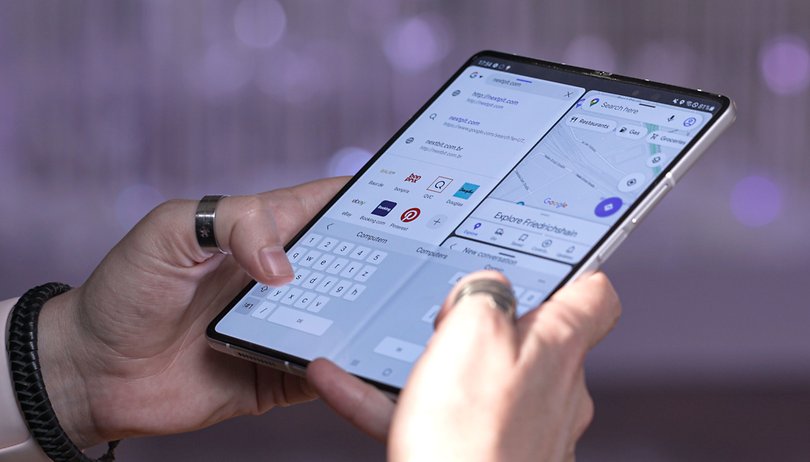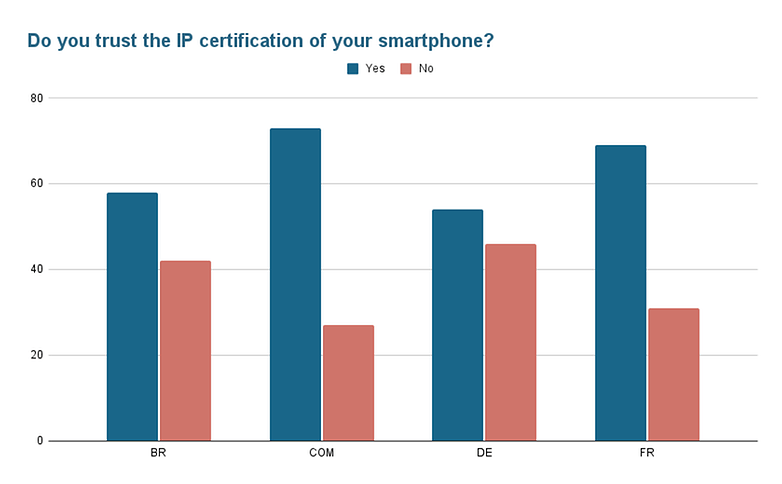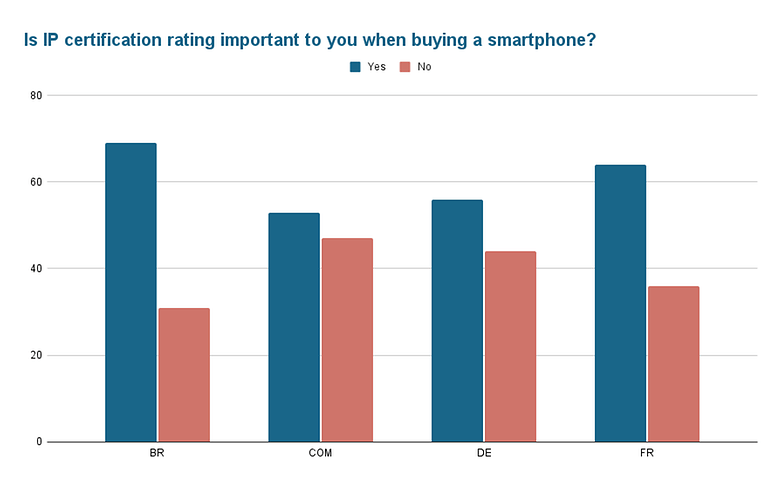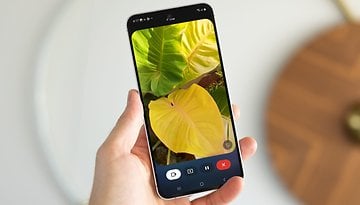Poll of the Week: How important is IP rating to you?


On the occasion of the release of the first waterproof Samsung foldables, we asked you in our NextPit survey how important the IP certification is to you. Here is now our evaluation. Spoiler: You don't really agree on this!
When we asked you on Friday about the importance of IP protection, we did so under the impression of the first IP-certified Samsung foldables. Those belong on the top shelf price-wise, and it's reflected in your comments to some extent. With such expensive purchases, you would like them to be protected from water and dust.
As always, the result of our poll considers the votes from the four main NextPit domains: Brazil, Germany, France and our International Community (.COM).
Not everyone trusts IP ratings
First of all, we wanted to know if you trust the IP certifications and the manufacturers' statements at all. Across all domains, the number of those with confidence in these certifications was greater than that of the skeptics.
However, the values diverged quite a bit: In Germany, there was only a narrow majority of 54% in favor, in Brazil the approval was slightly higher at 58%. In France (69%) and the international domain (73% in favor), the picture was much clearer.
That means that across countries, between 27 and 46% still don't trust IP certification. You guys explained that in the comments, too. Olaf from the German NextPit community points out that IP certification often doesn't help when the going gets tough:
[...] on the other hand, I know that in the only case of an accidental submersion - namely in the bathtub - I would be pinched in spite of certification in the warranty case. Bath additive, no clear water and so.
Several of you have thought in this direction and pointed out that the protection against water penetration is often linked to conditions such as no bath additive or no salt water. I can therefore understand your skepticism. Here you can see the first question again in graphic form:

Not all of you care about the IP rating!
When it comes to whether you take IP certification into account when making a purchase, the international picture is not uniform either. After all, on all four domains we see a preponderance on the side of those who pay attention to it. But here, too, it is very differently pronounced. With 69%, protection is clearly most important to our Brazilian community, followed by France with 64%.
This is followed by the German (56%) and the .com community (53%), where there are almost equal responses for each side. Personally, I'm also happy to see IP certification if it exists, but have completely different priorities in mind before buying. There was a full range of responses in your comments as well. Jerome69Paris writes:
Being very cautious, I have little interest in the waterproofing of my smartphones [...] In 30 years of mobile telephony, I have not never had a breakdown in waterproofing of any kind.
In Brazil, Anderson Maciel writes:
For all phones over 2000 reais (about US$370 converted), this is extremely important for me. For phones with a lower value, the IP certification is a big advantage.
Even if not all of you primarily pay attention to the IP rating when buying, most of you still find it "nice to have" that you don't have to worry about water or dust getting in. However, it is not uncommon to find smartphone users among you who would rather do without the rather expensive certification in favor of a lower sales price. Once again, we have prepared a graphical representation of your vote:

So again this week, all that remains is for me to thank you for your participation and comments. Feel free to leave us your opinions on the importance of IP certifications, we appreciate every comment. Friday we will continue with a new NextPit survey!
Original text:
Samsung has equipped its latest Z Flip 3 and Z Fold 3 foldables with IP rating certification. The question whether this is a selling point or not for the new flagships remain up in the air. So in this edition of Poll of the Week, we ask a very simple question: Is IP rating important to you when buying a smartphone?
"Ingress Protection" or "International Protection" is an international standard to denote the protection of electrical devices against water and dust. As a customer, you can easily know whether a smartphone can survive a dive into water and whether you have to worry about your handset while you are frolicking away at the beach. With the release of the Galaxy Z Flip 3 and the Z Flip 3, a new device category now receives protection against water and dust (to a certain degree, of course):
Foldable smartphones are a difficult technical feat to achieve when it comes to manufacturing quality products. This is because manufacturers like Samsung have to use a foldable display in addition to implementing complicated movement mechanisms for the hinge so that the display doesn't bend too much. For the very first time, Samsung manages to achieve an IPX8 certification with their new foldable flagships. This means these new smartphones should be able to withstand even a prolonged amount of time when submerged underwater.
Is IP rating important to you?
But how often do you go swimming with your smartphone anyway? And is having an IP rating really enough to provide you with confidence in the hardware to take a $1,500 smartphone into the pool? In our Poll of the Week, we want you to answer two simple questions:
Maybe your confidence in IP certification might be related to the next question:
Here we are at the short and sweet end of this poll. Of course, we want to also give you the opportunity to share your opinion with us when it comes to everything about smartphones, water protection, and IP rating in the comments section. Next Monday, we would have dissected the results of this poll and address any interesting objections from the NextPit community that arises, if any.



















